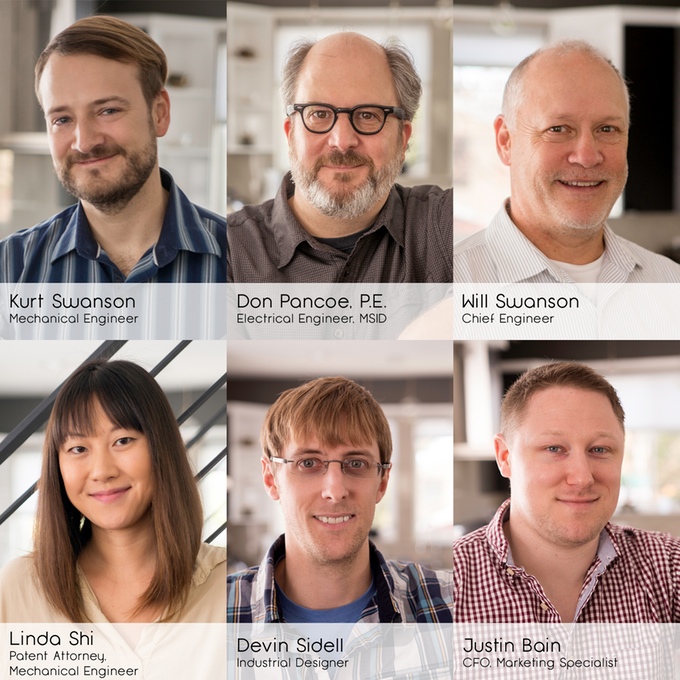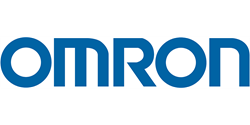When you’ve just won $50,000 in flash funding, how do you celebrate? By taking a break?
Not when you’re Noria! Arrow proudly announces that Noria is the next winner in their collaborative program with Indiegogo, and Arrow has awarded the Noria team $50,000 to help with their development process and get to market faster. The team is now focusing on testing their prototype and looking towards large-scale production, but despite their busy schedule, they’ve kindly taken the time to tell us a bit more about Noria.
It’s a surprisingly hot October day, but the heat doesn’t seem to bother Don Pancoe, electrical engineer and one of the founders of Noria – he’s calm, cool, and collected. As he should be, considering what he’s helped create with Noria, a new technology redefining just what it means to be cool.
Today, Arrow sits down with Don, who has been kind enough to answer a few of our questions about Noria.
Chris from Arrow: Thanks so much for speaking with us today! I’m sure you already know that a lot of us at Arrow have expressed interest in purchasing Noria for our own homes. But for those who don’t know, could you explain exactly what Noria is? What does it do?
Don Pancoe: Noria - or at least the first product from Noria - is a 5,000 BTU window air conditioner that is smaller, more attractive/lower profile and easier to install, remove and store than current models. It will also make use of the latest sensor and wireless networking technology to be a smart, connected device.
Arrow: Who is Noria? And who’s on your team?
Don: Noria is a spin-off from Likuma Labs, an engineering and design firm founded by Kurt Swanson and me, Don Pancoe, and we soon added Devin Sidell as Lead Designer. With the success of our crowd funding campaigns, we have grown Noria to a team of seven full-time staff plus contractors.

Arrow: What inspired you to make Noria?
Don: Kurt used to work at Boeing, where he gained experience in air flow design. Kurt also had an interest in thermodynamics from his mechanical engineering college days at Stevens Institute of Technology in Hoboken, NJ that he hadn't had much chance to exercise in his aerospace career. This background prompted Kurt to ask, "How small can we make a window air conditioner?" I’m a long-time electrical engineer who completed a Master's degree in Industrial Design at Philadelphia University, a combination that led me to specialize in the Internet of Things.
While we believe the smaller form factor of Noria is its biggest value proposition, as a modern, premium product, Internet connectivity is pretty much expected by our target customers. Our goal, however, is to make the "smart" features of Noria enhance rather than detract from the improved user experience afforded by its novel mechanical design.
Arrow: And I bet your customers can’t wait to try it out. Which brings me to my next question. What stage are you in with development?
Don: We are presently testing what we hope to be our final, complete alpha prototype. If the results are as we expect, we will transition to our design-for-manufacture beta unit, portions of which are already in development. After evaluating the beta for manufacturability, we should be able to fabricate tooling to kick off a pilot production run then full volume production.
Arrow: It does seem to be quite the production! Have you faced any challenges with regards to design or with your business overall?
Don: Our biggest challenge has probably been the evolving US Department of Energy efficiency requirements. When we began this project in earnest around 2012-13, I believe the minimum requirement for Energy Efficiency Ratio (EER - the cooling output in BTU divided by the energy input in watts) was around 9, although we were targeting in excess of 10. In mid-2014, a new standard was published raising the minimum EER to 11. It has required some extensive design revision and refinement, but our latest test results seem to indicate we can meet the higher standards.
Arrow: Noria is Arrow-Certified. How did you hear about Arrow Certification? Have you taken advantage of the design engineering support or the Arrow discounts?
Don: We have had an established relationship with Arrow since before the Arrow Certification program was announced. It was originally established when we had an office at NextFab, a maker space in Philadelphia, who also has ties with Arrow. Adam Beamer, our Field Sales Representative from Arrow, introduced us to the Arrow Certification program since he knew we are active on Indiegogo. We have certainly availed ourselves of Arrow's engineering support and plan to continue with Arrow for our supply chain and circuit manufacturing (through the Arrow Advanced Manufacturing Support Services or AMSS program).
Arrow: And we’re happy we could help you out in those areas! Through crowd funding, you also have the opportunity to get feedback from your backers. Has crowd funding impacted your original vision for Noria in any way?
Don: We have found a lot of preliminary interest from investors, but many of them were dissuaded by the scale and risk of backing a large hardware project. Crowd funding has been invaluable in proving market acceptance of our product, providing the initial funds for our full-time development effort, providing backer feedback that continues to drive our development process and making our name known to large players already in the industry.
Arrow: Arrow engineers worked with you to provide support and guidance throughout your development process. What are some of the key components included in Noria? Why did you end up going with those parts?
Don: We originally were considering a Sanyou relay for hot-side switching of our compressor simply because we found one in a competitor's product that we had disassembled early in the process. Arrow's engineers identified TE Connectivity's (TE) Potter & Brumfield relay as a compatible cross-reference. We also considered using a thyristor as the compressor-switching component, but we found that the TE's relay required less energy to keep it switched on than did the solid-state solution. As I had mentioned earlier regarding the minimum EER requirements, we are being very conscious of every watt we can save. We are also using TE's FASTON connectors since that style seems pretty much ubiquitous for AC power connections in the air conditioning industry.
Arrow: Would you recommend others to apply for Arrow Certification?
Don: Absolutely. In fact, we kind of already have. Renee Kakareka, founder of Olive Devices and a fellow Philadelphia University alum, had contacted me to see if I thought working with Arrow was a good idea for her business, to which I offered a solid 'yes.'
We wrap up our conversation and Don gets back to his task of making the world a cooler place. The team at Noria currently intend to get this revolutionary window air conditioner into the hands of their backers in the spring of 2017. Thanks to funds and support from Arrow, Noria will help you keep you cool this summer. Arrow and Indiegogo will be selecting two more recipients to receive flash funding and professional engineer and developer guidance.
What would you do with Flash Funding?


